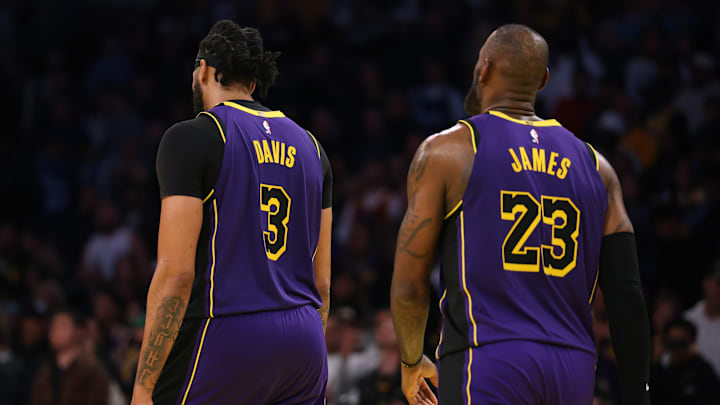As the 2025 NBA trade deadline nears, the future of the Los Angeles Lakers is suddenly hanging in the balance. The need to improve the roster was well-established, but a different type of pressure is mounting for general manager Rob Pelinka to make the best decision for the franchise.
As Anthony Davis and LeBron James express their concerns over the direction of the organization, Pelinka has been faced with a set of obstacles he must not allow to derail his plan for sustainability.
Davis and James have earned the audience of the Lakers' front office. They delivered a championship in 2019-20 and a Western Conference Finals appearance in 2022-23, and should thus be valued when concerns arise.
According to Shams Charania of ESPN, Davis and James have made their current concerns known about how Pelinka plans to supplement their talent in 2024-25.
"But with the Feb. 6 trade deadline a little more than two weeks away, league sources told ESPN that James and Davis are growing concerned about the Lakers' ability to make significant roster upgrades with their two tradeable first-rounders."
For as fair as it is for the franchise players to make their voices heard, Pelinka must not give in to the temptation to simply placate them if a better alternative exists.
Rob Pelinka must stay true to vision of sustainable Lakers excellence
Los Angeles has two future first-round draft picks at its disposal ahead of the 2025 NBA trade deadline. The reason they only have the two available to them, however, is the fact that they're already shipping out selections in 2025 and 2027.
To part ways with picks in 2029 and 2031 would thus continue the trend of the Lakers attempting to fill a rotation without invaluable rookie-scale contracts.
The inevitable result of the Lakers giving away a slew of first-round picks has been their current predicament. The current roster has become overly reliant on players on minimum contracts, including Jaxson Hayes, Cam Reddish, and the currently injured Christian Wood.
Had Los Angeles instead utilized its first-round draft picks to acquire developable talent, it could've paid a similarly affordable cost for a more malleable talent with more upside to explore.
It's also essential to note that the Lakers' history of trading first-round draft picks away has yielded shortsighted results. The key players acquired during their three major trades were D'Angelo Russell, Dennis Schröder, Jarred Vanderbilt, and Russell Westbrook.
Vanderbilt is the only player from that group that's currently on the Lakers' roster, and speculation is rampant that he could be moved in 2025.
Perhaps the perfect trade target will arrive on schedule, thus enabling Pelinka to justify utilizing first-round draft picks as assets to facilitate improvement. If it doesn't, however, simply pursuing a bigger name to attempt to appease Davis and James would be a disastrous decision.
The Lakers need to figure out how to consistently win both during and beyond the 2024-25 season, and that begins with properly valuing future draft picks.
